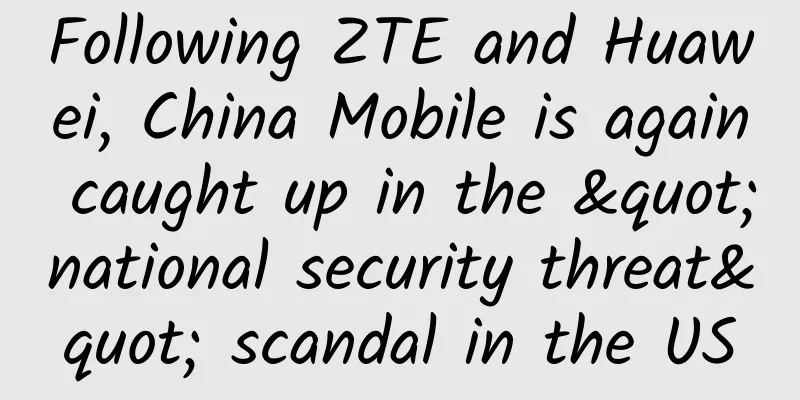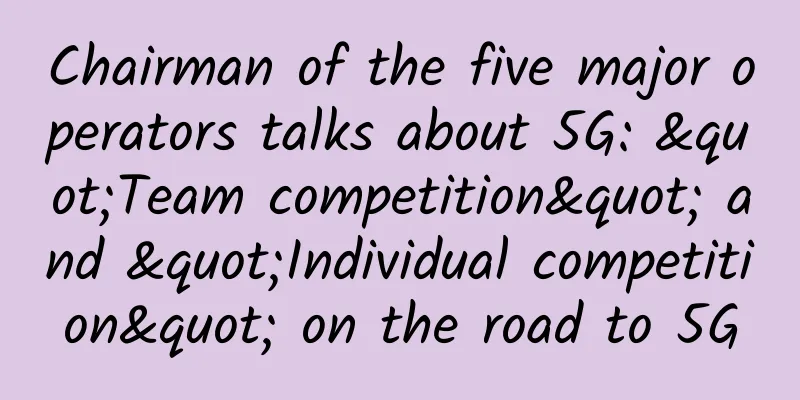Following ZTE and Huawei, China Mobile is again caught up in the "national security threat" scandal in the US

|
Trump reportedly blocked China Mobile from entering the U.S. telecommunications market on the grounds that it would threaten U.S. national security. China Mobile submitted an application to enter the U.S. market in 2011.
On Monday, the U.S. National Telecommunications and Information Administration (NTIA) said in an email that the Federal Communications Commission (FCC) should reject China Mobile's application because China Mobile is backed by the Chinese government and allowing China Mobile to provide international voice communications between the United States and other countries would pose risks to U.S. law enforcement and national security. On Friday, the United States said it would impose tariffs on $34 billion of Chinese imports, and China said it would retaliate in kind. U.S. President Donald Trump threatened to impose additional tariffs on $200 billion worth of Chinese imports if China retaliated. The United States has been the world's hegemon in the past few decades, especially in technology, but this dominance will not last forever. Previously, ZTE and Huawei were sanctioned by the United States one after another. There are signs that China will play an absolute leading role in the development of technologies such as 5G and artificial intelligence, and the United States needs to ensure its absolute leading position in technology. ZTE was banned from buying American components for seven years after being accused of violating US sanctions against Iran and North Korea. The company stopped trading in Hong Kong on April 16 and ceased all operations in early May. The lifting of the ban has entered the legal process after ZTE recently reached an agreement with the US Department of Commerce. According to the agreement, ZTE will pay a fine of US$1 billion, put US$400 million as escrow funds, and fire all senior vice presidents and above. Huawei and Google announced a strategic partnership in January, and Huawei will integrate Google's Android information into Huawei's Android smartphones. However, some lawmakers in the US Congress seem to be interested in banning Huawei's business in the US. Five lawmakers sent a letter to Google CEO Sundar Pichai, asking Google to reconsider its partnership with Huawei, believing that it could pose a potential threat to US national security. This time, the United States has again refused China Mobile's entry into the U.S. market on the grounds that it would threaten national security. This is only part of the increasingly fierce Sino-U.S. trade war in recent times. |
<<: From "eating meat" to "drinking soup": the difficult transformation of telecom operators
>>: Six wireless transmission modes, do you know them all?
Recommend
Dr. Li Jin: Is building credibility “regardless of cost”?
[51CTO.com original article] June in Beijing is w...
5G-enabled IoT use cases
The commercial use of 5G provides enterprises wit...
The first commercial 5G mobile network in the United States is here! Verizon, a US telecom operator, enters the market
U.S. telecom operator Verizon announced on Wednes...
How will future 6G networks cope with the demand for mobile data?
Ian Wong, director of RF and wireless architectur...
IT teams abandon DIY SD-WAN for managed hybrid models
When software-defined WAN first emerged, demand f...
The technical support behind the 11.11 promotion: in-depth analysis and practical cases of SLA and SLO
background It's the 11.11 promotion day again...
HostNOC: $39.99/month-E3-1230v2/16GB/1TB/100TB/Los Angeles data center
HostNOC is a foreign hosting company founded in 2...
Let's talk about WiFi6 security technology
1. WiFi6 Overview In 2018, in order to better bui...
5G new infrastructure, a new strategic "high ground" for cloud giants to accelerate their layout
Connecting more and more data, applications and c...
Threat attacks targeting home routers increased fivefold
In the first quarter of 2018, the number of cyber...
Experts interpret Huawei's "recipe" for smart cities: taking a rational, scientific and pragmatic approach
[51CTO.com original article] Not long ago, the 21...
Do you know all the things you need to pay attention to when using threads?
[[344283]] This article is reprinted from the WeC...
When the "cold current" of the epidemic meets the "warm current" of 5G, can terminal manufacturers turn crisis into opportunity?
Amid the pandemic, terminal manufacturers have st...
In the 5G era, virtual operators “disappear”
[[269893]] "In the 4G era, the three major t...









